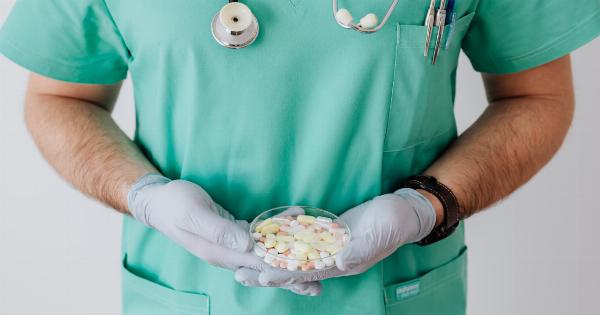Stroke is a medical emergency that can affect anyone at any time. It occurs when the blood flow to the brain is interrupted, either by a blockage or by bleeding in the brain.
Knowing the signs of a stroke can help you get immediate medical attention, which is crucial in preventing long-term damage and even death. Here are the signs to look out for:.
1. Sudden Confusion or Difficulty Speaking
If someone suddenly starts slurring their words or can’t seem to speak properly, it could be a sign of stroke. They may also appear confused or have trouble understanding others.
2. Sudden Numbness or Weakness in the Face, Arm, or Leg
One side of the body may suddenly feel weak or numb. It may be difficult to move one arm or leg, or the face may droop on one side.
3. Sudden Trouble Seeing
If someone suddenly has trouble seeing out of one or both eyes, it could be a sign of stroke. They may also experience double vision or have trouble with their peripheral vision.
4. Sudden Difficulty Walking or Loss of Balance
If someone suddenly has trouble walking or appears unsteady, it could be a sign of stroke. They may also experience dizziness or a sudden loss of balance.
5. Sudden Severe Headache
A sudden and severe headache could be a sign of stroke, especially if it comes on suddenly and is accompanied by other symptoms.
What to Do if You or Someone You Know Is Having a Stroke
If you or someone you know is experiencing any of the above symptoms, it’s important to get medical help right away. Call emergency services or go to the nearest hospital immediately.
Time is crucial in treating a stroke, and the sooner treatment is received, the better the chances of recovery.
In the meantime, try to keep the person calm and comfortable. Make sure they are lying down with their head elevated and not drinking or eating anything.
Preventing Stroke
Preventing stroke involves making lifestyle changes that can reduce your risk factors. This includes:.
- Eating a healthy diet
- Exercising regularly
- Not smoking
- Maintaining a healthy weight
- Managing high blood pressure, diabetes, and cholesterol
If you have a history of stroke in your family, or if you have risk factors such as high blood pressure or high cholesterol, talk to your doctor about steps you can take to reduce your risk.
Conclusion
Stroke is a serious medical emergency that can be treated if caught early. Knowing the signs of stroke and getting immediate medical attention can help prevent long-term damage and even save a life.
Make sure to take steps to reduce your risk of stroke by adopting a healthy lifestyle and managing any risk factors you may have.































